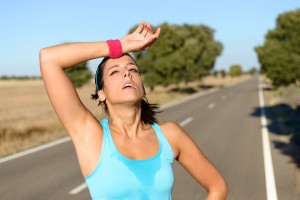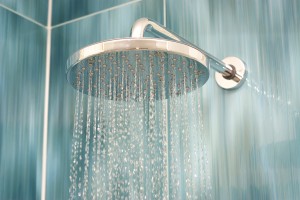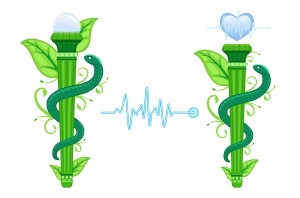 When spring and summer come around, most individuals enjoy being outside. However, with the temperatures on the rise, many could potentially develop heat exhaustion or heat stroke if they are not careful. This blog is meant to provide you with preventative measures, signs and symptoms to look out for, and what you can do if you or another individual experiences heat exhaustion or heat stroke.
When spring and summer come around, most individuals enjoy being outside. However, with the temperatures on the rise, many could potentially develop heat exhaustion or heat stroke if they are not careful. This blog is meant to provide you with preventative measures, signs and symptoms to look out for, and what you can do if you or another individual experiences heat exhaustion or heat stroke.
Prevention
Ultimately, it is more beneficial to prevent heat exhaustion and heat stroke in the first place. The following is a list of things that you can do to prevent both:
- Dress weather appropriate – not too warmly and lighter in colour
- Wear a hat if you will be spending a significant amount of time in the sun
- Avoid activities in the late afternoon when the sun is at the highest point in the sky
- Perform activities in the shade when possible
- Keep hydrated – make sure to have a drink of water every 15 – 20 minutes
- Avoid excessive amounts of caffeine and alcohol
Signs and Symptoms
Heat exhaustion and heat stroke are quite different in their presentation and severity. Heat exhaustion is the lesser in regards to severity when compared to heat stroke. Heat exhaustion presents with the following:
- Headache
- Dizziness and Confusion
- Loss of Appetite
- Feeling Nauseous
- Sweating
- Pale clammy skin
- Muscle Cramps
- Fast and Weak Pulse
- Shallow Breathing
Heat stroke on the other hand is slightly more severe:
- Headache
- Dizziness and Discomfort
- Restlessness and Confusion
- Hot, Flushed, and Dry Skin
- Low Level of Response or Consciousness
- Full and Strong Pulse
- Body Temperature Above 40 degrees Celsius
Management
How you might manage either situation is very similar, but in the case of heat stroke, it is best to call Emergency Medical Services (EMS) for help in order to better aid this individual. Otherwise, the following recommendations could be made for both in most cases:
- Get to a cooler place (eg. in the shade)
- Have the individual lay down with their legs raised
- Rehydrate the individual with cool water
- Recommend that the individual seek Health Care regardless of how quickly they recover
- If their condition gets worse, call EMS
In addition to the above recommendations, for heat stroke, it is wise to cool the individual down with cool clothes being applied to the body and a fan being placed near them. It is necessary to bring their core body temperature down to around 38 degrees Celsius.
Naturopathic Additional Tips
In addition to the above management, some additional measures could be applied AFTER the above management is followed:
- Coconut water or aloe vera juice can be used to help rehydrate
- Glonoinum homeopathic can be used to aid with symptoms from heat stroke
- China homeopathic can be used for extreme fluid loss resulting in heat stroke
- Applying an peppermint essential oil to the feet and cooling clothes to help lower body temperature
- Applying an onion to the feet to help lower body temperature
- Contrast showers daily to help prevent lack of acclimatization
- Seek naturopathic care regularly to help your body be in the best shape it can be
Have you benefitted from reading this blog? Know someone that would benefit as well? Share, Like, Comment, or Tweet this article, and let me know what you think.
Some of the information provided above may not be appropriate for everyone, please consult with your doctor before trying any of the above. If you are interested in Naturopathic Medicine and wanting a different approach to your health care needs, contact Elisha Cook via the contact portion of this website.
Source: http://www.sja.org.uk/sja/first-aid-advice/hot-and-cold-conditions/heatstroke.aspx



